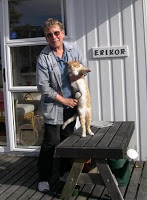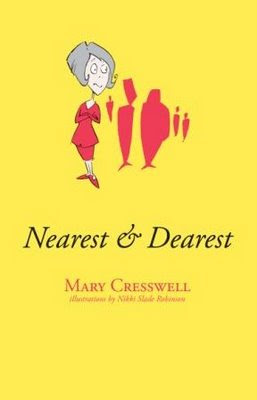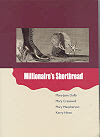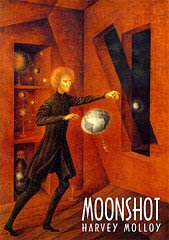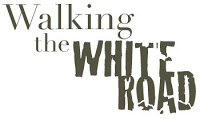
Here we are: Tania Hershman’s virtual book tour for her excellent short story collection The White Road and Other Stories, which is available in New Zealand from Fishpond (here: The White Road and Other Stories), has touched down at my blog for its fifth stop. (For details of past and future stops on the tour, see the end of this post.)
What links a café in Antarctica, a factory for producing electronic tracking tags and a casino where gamblers can wager their shoes? They’re among the multiple venues where award-winning writer Tania Hershman sets her unique tales in this spellbinding debut collection.
I’m reading The White Road and Other Stories at the moment, and am really enjoying its mixture of flash fiction (very short stories) and stories inspired by articles in New Scientist magazine. I recommend it!
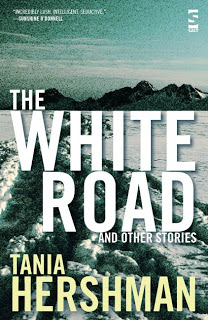
Biography
Tania Hershman was born in London in 1970 and in 1994 moved to Jerusalem, Israel, where she now lives with her partner. Tania is a former science journalist and her award-winning short stories combine her two loves: fiction and science. Many of Tania’s stories, which have been broadcast on BBC Radio 4 and published in print and online, are inspired by articles from popular science magazines. In November 2007, she founded The Short Review, a unique website dedicated to reviewing short story collections. For further information, visit The White Road and Other Stories. Tania blogs at TitaniaWrites.
The Interview
Tania, you made a very interesting comment on my blog, in response to my post on Is Literary Fiction a Genre? You said, in part: “To be frank, I hate genre distinctions, anything that sets something apart from something else and runs the risk that someone who loves to read will miss out on great writing because it’s on another shelf in the book shop.” Yet the whole publishing industry — publishers, booksellers, reviewers, and indeed many readers – appears to operate on the basis of genre. Do you feel that you’re a lone voice in the wilderness on this issue, or part of a growing trend?
Tim, first, thanks for having me, it’s great to be here. Second, I have no idea if I am a lone voice on this, I haven’t read that much else about it, but whenever I’ve written about it, such as during a guest blog post on Vulpes Libris, I have had a lot of great comments. I asked author Polly Frost to write a guest post on The Short Review blog about genre (she called herself a “genre slut”, which I love!) She said: “You’d think that anyone who writes or reads would be cheering for everyone else. Instead, some highbrow literary people sneer at genre stories. Meanwhile, there are genre people who are belligerent and defensive.” This doesn’t make sense to me, now that I am being exposed to what is called “genre” fiction, which I am finding far more beautifully-written, touching, relevant and peopled with well-rounded and fascinating characters than much of the so-called “literary” fiction. Why draw these lines? Why section off whole swathes of literature? I can understand how this would make those in the sectioned-off part rather defensive. Who wouldn’t be? Tear down the walls, get rid of the genre shelves, I cry!
But then, on the other hand, fans of a particular field – I will say field instead of genre – of literature, such as science fiction, or crime, may object. Where will we look to find the kinds of books we like to read? they might ask me. What I would say is, as you are searching through the shelves for the books you already know you want to read, you must just find a book or two that you didn’t know you wanted to read and might just love. What’s better than those moments, the finding of a new favourite author?
In terms of the publishing industry, it’s obviously easier for them to operate with the genre distinctions: they know who to sell what to, it’s all clear cut and neat, in boxes. They know where to advertise, how to spread the word, where to send an author to be interviewed, to give readings. But will that get an author new readers? Readers who don’t know they like science fiction, like me? No. To do that would be a far greater challenge – perhaps similar to the challenge of “suggesting” to novel readers they might also enjoy a short story collection. Cynical, me??
If we consider interstitial fiction as being fiction that crosses, or falls between, genre boundaries, do you regard all or some of the stories in The White Road and Other Stories as being interstitial fiction, and if so, do you feel a kinship with other writers of interstitial fiction?
Well, strictly speaking, interstitial fiction only exists if you believe in the genre boundaries in the first place. But since we haven’t reached a genre-less state yet, I will answer your question. When I wrote the stories in The White Road, I had no thought of genre, of where they might “fit”. Plaits is a story where a woman talks to her knees; in The White Road the main character sets up a cafe in Antarctica; the protagonist of Rainstiffness is temporarily paralyzed every time it rains; the main character of Self Raising makes “scientific” cakes. I don’t know where this places my stories!
I did hope I was writing mostly what is called “literary fiction”, which is incredibly hard to define and might be best defined as generally being the opposite of commercial fiction and more concerned with the quality of the writing and with language than with page-turning plots. But as to where it fits now, I am waiting to see what readers think. I have been told that some of the stories remind people of science fiction. I had a long discussion on Vanessa Gebbie’s blog about magical realism but am unsure whether some of my stories fall under that heading. Some of the stories are “realist”, sort of. So, I guess the long answer is yes, my stories tend to fall between, rather than within, genres as they are currently defined.
I am most definitely attracted to interstitial fiction. It has a wonderful appeal, that it doesn’t fit neatly into anywhere. I don’t like neat and tidy. I like things that shake up the establishment, writing that can’t be easily labelled. If I am in this category, I am delighted to be here! I have only read one anthology that was defined as interstitial (although “defined” seems like the wrong word!); the Interfictions anthology published by the Interstitial Arts Foundation. I enjoyed it greatly, but it seemed to chime with a lot of what I already love to read – stuff I would call surreal, irreal, magical realist, stories you can find in publications such as Cafe Irreal, Sleepingfish, Conjunctions.
Strictly from a marketing point of view, has your approach to genre been a help or a hindrance?
I am new to the book marketing industry, my book has only been out since September, but since I am spending a lot of time myself trying to market The White Road and wondering how exactly to do that, I can see how it would have been far easier to fit into a “genre” and aim the book squarely at that genre’s readers. Say science fiction, for example. I would have known where to go, which magazines to send review copies to, etc… As it is, I am having to make it up as I go along. But the fact that half the stories are inspired by articles from UK science magazine New Scientist certainly seems unique, and I was delighted when New Scientist itself enjoyed the stories (I was concerned they might think I was taking their science and somehow trivialising it!) and decided to publish the title story on the New Scientist website.
That was a fascinating experience and provoked some interesting comments. At first, those who commented didn’t seem to understand that what they were reading was fiction and not journalism. Several scolded me harshly for being ungrammatical, when in fact it is my main character who has an “interesting” approach to grammar. A few writer friends stepped in to explain about fictional voice, and the complainers mostly recanted and apologised. But then a discussion was generated about whether the story’s denouement was plausible, with those for and against, and I just sat back and watched, fascinated, as the two camps argued it out. I was delighted because it seemed my story was reaching an audience that never normally reads short fiction So there I crossed genre boundaries, straddling the territory between fiction and fact. I would love to repeat the experience, if New Scientist wants to! I am not sure how many books I sold through that article, but I had many hits to the book’s website, and that’s pretty wonderful.
New Zealand has a distinguished tradition of short story writers, including some, such as Katherine Mansfield, who have achieved international fame – yet, overtly or covertly, I’m told all the time that short stories aren’t “proper” fiction, whereas novels are. Do you get the same reaction?
This is the attitude that dogged me throughout my MA in Creative Writing in the UK four years ago. From the start, I and the one other “fool” who insisted on writing short stories instead of a novel were treated as though we were a lesser species. At one point, my short stories were referred to as exercises whose purpose was simply as a warm-up to the “real thing”. Every agent and editor who came to talk to us said they weren’t interested in short story writers. It seemed ridiculous to us, it was like deciding, for example, to cut out all nuts from your diet simply because they are small, despite the fact that peanuts and pecans, hazelnuts, almonds, cashews, are all shapes and sizes, tastes and textures.
However, this attitude “backfired”: it made me all the more determined only to write short stories, at least for my MA thesis. I have heard the same attitude voiced since, and all I can say is that it is a shame; publishers, it seems to me, are demonstrating a singular failure of imagination in not even attempting to persuade the public to buy more collections and readers are missing out on great writing if they insist on sticking only to novels. If the Short Review [see below] can make a minute dent in this wall by reviewing more collections and demonstrate that everything you look for in a novel you can also find in a short story collection, then I will be happy.
You have done something to promote and succour the short story: you set up The Short Review exclusively to review short story collections. I won’t ask the dreaded question “where do you get your ideas”, but I will ask: where did you get that particular idea – and how do you find the time to keep “The Short Review” going and write as well?
Thanks for not asking that first question, I wouldn’t have had the faintest idea how to answer. As for the second, the idea for The Short Review came in the period just after getting the life-altering news that Salt Publishing had accepted my short story collection. I had waited over 30 years for that day, and when it came I felt as if I had had the wind knocked out of me. It was all I ever wanted – and when someone offers you that, what do you do next?
I moped around for a while, and then decided to do something short-story-related but which didn’t actually involve writing. Whereas I had always blamed the lack of sales of short story collections on publishers not publishing enough of them, I realised that the fault also lies with reviewers: short story collections get a small fraction of review column inches compared to novels. I thought I would do my bit to redress the balance. To be honest, when I bought the domain name and set it up, I really thought it would be for me and ten friends. It grew beyond my wildest expectations: we have a mailing list of 400, and I have 35 reviewers around the world who review for me, both new and old collections, across every “genre” (am I allowed to say that??!) and category, from steampunk to erotica, young adult to historical fiction.
Yes, it takes up a great deal of time – I do the maintenance and layout of the site myself, uploading each issue, as well as fielding offers of review copies and finding reviewers to review them, following up to see if they’ve arrived, making sure reviews come in on time, doing as many interviews with authors as possible, and reviewing a book myself each issue – but it is a labour of love and it makes me so happy to do it. Every issue we publish, I want to buy almost all the books we review. The interviews are often enlightening, touching, funny, it’s wonderful to get a peek behind the scenes at the process of putting together a short story collection, and authors have been honest and generous in their answers. I try not to work on the Short Review throughout the month, but do most of the work in one week, so it doesn’t spill into my writing time. But reviewing someone else’s stories teaches me so much about my own writing, and inspires me greatly, as do the interviews, so I don’t think of it as interfering, more as enriching my writing life.
You live and write in Jerusalem. What impact do the many and intertwined special circumstances of Jerusalem – religious, political, military, and personal – have on your writing, and on your circumstances as a writer?
A very interesting question. I have several author friends who used to live in Jerusalem and had to leave because they found it too stressful to write there. But I love the atmosphere, I wake up in the morning thrilled to be living here. Yes, it’s hard, the news is full of tragedy, on all sides, but there are so many small moments of joy, just the way the sun glints off the golden stones, the way Israelis will talk to you everywhere about anything, the atmosphere on the Sabbath – Shabbat – when the whole city closes down, few cars on the road, people are walking to and from synagogue, to and from dinner. There is magic in the air. No wonder people have been fighting over Jerusalem for thousands of years.
For each copy of “The White Road” published, a tree has been planted through the Eco-Libris scheme. Is this idea of offsetting the greenhouse gas emissions from books catching on with authors and publishers you’re in contact with? Have you been satisfied with the way it’s working?
I came across Eco-Libris two years ago, just as I was finishing up my career as a journalist – it was established by Israelis in Israel and the US – and I loved what they were doing so much that I decided I had to write about them. Then, when Salt wanted to publish my book, I realised that partnering with Eco-Libris would ease my guilt about wanting a beautiful book made from many trees, as well as, I hope, spreading the word about what Eco-Libris does. I pay them a certain amount per book for them to plant a tree per book in developing countries around the world, where they are working with the locals to find out what is best for them. They have also been furiously publicising my book – which may be the only short story collection ever to have had a tree planted for each copy printed – on green and environmentally-conscious sites around the world, and I am very grateful for that. I will be “appearing” on the Eco-Libris blog on Dec 10th as part of this Virtual Book Tour, so will, no doubt, be talking more about our partnership then, but so far, I am delighted!
Finally, a question from left field. Your collection “The White Road and Other Stories” has 27 stories. My collection “Transported” has 27 stories. Should the reading public be concerned? Are we the vanguard of a new literary movement, the “Group of 27”?
An excellent idea! I’ll buy the domain name, you invite people. I am sure 27 has mystical roots – divisible by 9 and 3 only, that sounds mystical to me! Hmm, we’ll have to talk about this more, definitely.
Walking the White Road: Tania Hershman on Tour Oct 2008-Jan 2009
Next stop on the tour:
Previous stops:
